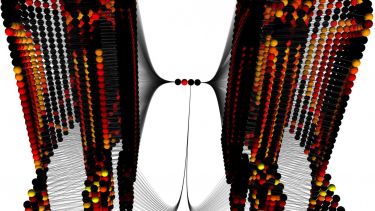Complex Systems Modelling
Complex systems modelling is defined by the application of diverse mathematical, statistical and computational techniques, to generate insight into how some of the most complicated physical and natural systems in the world function.

Complex systems are those whose properties arise from the non-linear interaction of components, such as cells in a body, neurons in a brain, or individuals in a group. Our technical approaches span the whole range from very simple deterministic and stochastic mathematical approximations, through principled approaches to dealing with uncertainty, to complex computational and physical simulation in software and in robotic hardware. Given their ubiquity, the benefits from increasing our understanding of complex systems and the appropriate tools to analyse them are hard to overstate.
Application Areas
- Collective Behaviour
- Computational Neuroscience
- Computational Physiology
- Mechanobiology
- Robotics
- Social Behaviour
Core members
Academic staff
- Paul Watton (Head of group)
- Richard Clayton
- Mike Holcombe (Emeritus Professor)
- James Law
- Michael Mangan (affiliate member)
- James Marshall
- Tony Prescott
- Mari-Cruz Villa-Uriol
- Dawn Walker
- Dr Stuart Wilson
- Dr Xu Xu
Research staff
